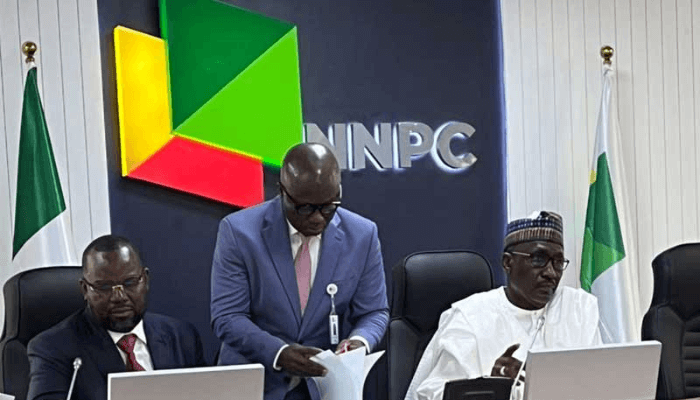The Nigerian National Petroleum Company (NNPC)’s latest announcement of a N2.5 trillion profit for 2022 has failed to impress some stakeholders, who are raising concerns about the figure’s context compared to its international peers.
The NNPC posted a historic profit after tax of N2.5 trillion, 279 percent higher than the previous year, but in comparison with its peers, Waziri Adio, executive director of Agora Policy, said the performance is underwhelming.
“The first issue is how poorly performing NNPC Ltd still is in both absolute and comparative terms,”Adio said in a note.
Data gathered by BusinessDay showed NNPC recorded an operating profit of N694.29 billion ($1.61 billion), a total revenue of N8.82 trillion (N20.44 billion) and total assets of N58.65 trillion ($136 billion), leading to an operating margin of 7.8 percent and an asset turnover ratio of 14.7 percent in 2022.
“Both indicators show that NNPC Ltd was financially not in fine fettle,” Adio said.
One of NNPC’s peers, Petronas, Malaysia’s state-owned oil company, recorded an operating profit of $31 billion, revenue of $75 billion, and assets of $162 billion within the same period. It also recorded an operating margin of 40.89 percent and an asset turnover ratio of 46.29 percent.
On its part, Qatar Energy secured $26.7 billion in operating profit and $53.8 billion in revenue with total assets of $162 billion. It secured a 49.63 percent operating margin and asset turnover ratio of 33.20 percent.
“In sum, these national oil companies are surely sweating their assets. Not NNPC Ltd,” Adio said.
Another major concern for most analysts is the belief that Nigeria’s national oil company is not optimising its oil reserves.
“First, look at reserves, the known quantity of hydrocarbons each national oil company is managing. NNPCL has four times the reserves that Sonangol has, yet NNPCL is delivering less oil production daily. Petrobras, with a third of NNPCL’s reserves, produces nearly three times more oil and gas,” a senior oil executive told BusinessDay.
Nigeria is Africa’s biggest oil producer with reserves standing at 37 billion barrels but produced an average of 1.5 million barrels daily last year. In contrast, PEMEX, the Mexican national oil company, derives production entitlement of 2.45 million barrels of crude oil per day from proven reserves of 7.4 billion barrels, and Petrobras generates production entitlement of 2.68 million bpd from proven reserves of 10.47 billion barrels.
“NNPC Ltd has reserves twice or thrice that some of its comparators but is deriving entitlements less than a quarter of theirs. NNPCL is not maximising its reserves, which negatively impacts its revenue and assets,” Adio said.
He added: “A key reason why NNPC Ltd generates low revenue from its assets is because 51 percent of its revenue in 2022 came from the sale of petroleum products, which is a low-margin business. The company looks more like a downstream company than a national oil company.”
Other experts said NNPC in comparison to other local producers like Aradel and Seplat cannot even deliver enough value from the fields it is managing alone, despite its insistence that it must have a right of first refusal in any divestment deals.
Its subsidiary, NNPC Exploration & Production Limited (formerly the Nigeria Petroleum Development Company), which was created in 1988, has over two dozen fully or partially owned oil and gas blocks, more than many members of the Organization of Petroleum Exporting Countries, yet 70 percent of its fields are dormant.

